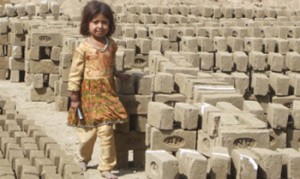- Home
- News
- Features
- Topics
- Labor
- Management
- Opinions/Blogs
- Tools & Resources
ILO: Tougher Measures Needed To Curb Forced Labor
ILO News— A new ILO report highlights the need for tougher measures to combat forced labor, which claims 21 million victims worldwide.
Men, women and children worldwide are coerced into jobs they can’t leave, trapped in debt bondage, trafficked for sexual exploitation and even born into slavery.
Efforts to prevent, identify and prosecute cases of forced labor often fall short of what is needed, despite good practices in some countries, the International Labour Organization said, in a report prepared ahead of meeting of experts on forced labor representing governments, workers and employers (February 11-15, 2013).
Many forced labor victims work hidden from public view, on fishing vessels and construction sites, in commercial agriculture and in factories.
“Forced labor encompasses brick kiln workers trapped in a vicious cycle of debt, children trafficked for forced begging and domestic workers deceived about their conditions of work,” the report said.
Debt bondage, under which laborers and their families are forced to work for an employer to pay off the debts they have incurred or inherited, remains widespread in some countries.
According to the report authors, “vestiges of slavery” still survive in some countries, where “conditions of slavery continue to be transmitted by birth to individuals who are compelled to work for their master without payment.”
Domestic workers, the majority of whom are women and girls, are often victims of abusive practices by employers, such as non-payment of wages, deprivation of liberty, and physical and sexual abuse. These practices can amount to forced labor.
Migrant workers are at risk too.
The report warns that trafficking of people, including children, for sexual and labor exploitation, could increase in the future as a result of growing labor mobility.
On the other hand, the systematic imposition of forced labor by the state has declined worldwide, and has practically disappeared in the great majority of countries.
State-imposed forced labor accounts for 10 per cent of the nearly 21 million victims of forced labor worldwide, according to 2012 ILO figures contained in the report.
Forced Labor: Punishment Is Not Strong Enough
In recent years, there has been growing recognition of the importance of measures to deter would-be perpetrators, strengthen law enforcement responses, address demand and reduce the vulnerability of potential victims of forced labor.

Around 88 million of the world’s child laborers are young girls under 18, 5,5 million in forced labor.
But, while most countries have adopted legislation criminalizing forced labor, punishment is not always strong enough to act as a deterrent, in some cases amounting to fines or very short prison sentences.
Most countries lack comprehensive measures targeting demand for forced labor goods and services, though some countries have taken legal and other measures to discourage individuals and businesses from exploiting workers in slavery-like conditions.
Identifying victims also remains a major challenge.
Some countries fail to sufficiently support labor inspections, which can play a key role in finding the victims, as well as preventing situations of abuse from degenerating into forced labor.
In many cases, measures have been taken to reduce the vulnerability of specific groups, such as awareness-raising programs aimed at workers heading overseas.
The February 11-15 meeting at ILO headquarters will assess the need for further standard-setting to complement the ILO’s Forced labor Convention, 1930 (No. 29) and Abolition of Forced labor Convention, 1957 (No. 105), by focusing in particular on prevention, victim protection, including compensation and trafficking for labor exploitation.
| Facts and figures from the ILO Global Estimate of Forced labor 2012 |
|
Please subscribe to WOW’s posts by email:
[subscribe2]
List your business in the premium web directory for free This website is listed under Human Resources Directory




